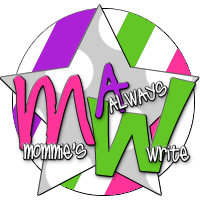Water is one thing you definitely want to increase. Try drinking 2-3 quarts of water a day. As you are nursing, you will be more thirsty anyway. However, don't drink too much as that can reduce your milk supply.
When you are pregnant, you are told how important folic acid is. Well, the same is true when you are nursing. You can always take a prenatal vitamin or a folic acid pill. However, there are also some foods you can eat when nursing as well. These foods include corn, chick peas, spinach, wheat, and orange juice. Some other vitamins that are also vital to your baby and yourself as you nurse include calcium, zinc, and vitamin A. You can get vitamins to fill the gap, or there are foods you can eat as well. As far as calcium is concerned, while you are nursing you will need 1,200mg of calcium a day. A supplement will probably be needed to reach this goal. However, you can also find calcium in dairy products and uncooked vegetables.Eggs, meat, and oatmeal are good sources of zinc. For vitamin A, you can eat carrots, vegetables, meat, fish, and butter.
While you do want to eat as healthy as you can while breastfeeding, there are certain fruits and veggies that may have a negative effect on your little bundle of joy. As far as veggies go; cauliflower, broccoli, onion, cucumber, celery, peppers, garlic, turnips, and cabbage are known veggies that can make your baby gassy. Also, fruits such as cherries and prunes have a laxative effect, which may also make your baby unhappy. Some other foods that may make your baby reject your milk include chocolate, citrus fruits and juices, spices, strawberries, pineapple, and kiwi.
If garlic does not seem to give your baby gas, give it a shot. Garlic is known to increase milk supply. However, if it gives your baby gas, it is not worth it. So, try it out and if he or she has no gas afterwards, keep it coming. Otherwise, it would be wise to cut back or eliminate your garlic intake.
You want to be cautious of your caffeine intake. While caffeine in moderation is okay, you want to keep in mind that too much caffeine will throw your little one's sleep schedule off track.
Alcohol is a big no-no while you are nursing. However, if you do want to have a drink or two one night; pump out a few bottles prior to drinking. Then, once have finished drinking; pump out your milk and throw it away. Do not nurse for two hours after having your last drink. The old wive's tale that beer increases your milk supply is not true, so please do take this as fact. It's called an old wive's tale for a reason.
You don't necessarily have to change your entire diet because your breastfeeding. You just want to be more aware of what you are eating and any reactions your baby has. Breastfeeding is definitely the best for your baby, so if you can do it; your baby will thank you for it when he or she is older.











No comments:
Post a Comment
In an effort to maintain a spam free blog, all comments must be approved before they will become visible.
-Nikki Layne